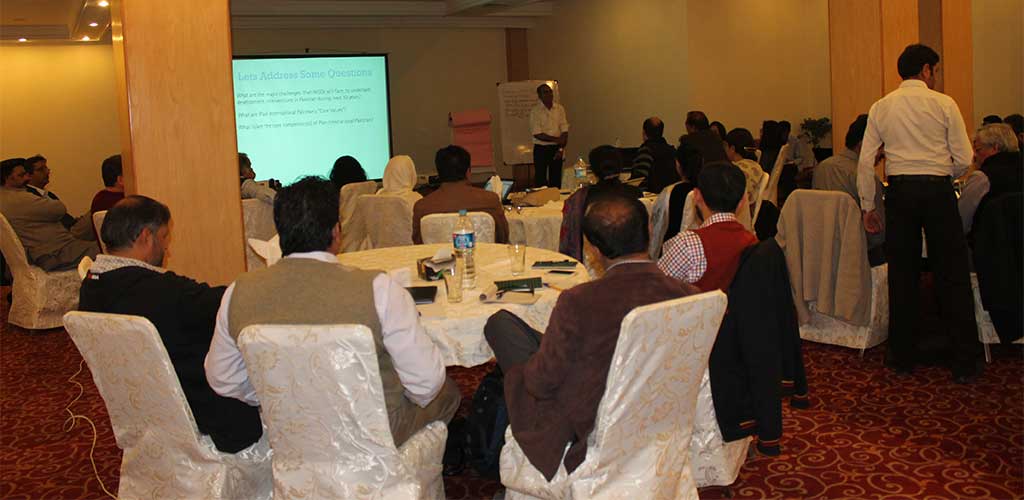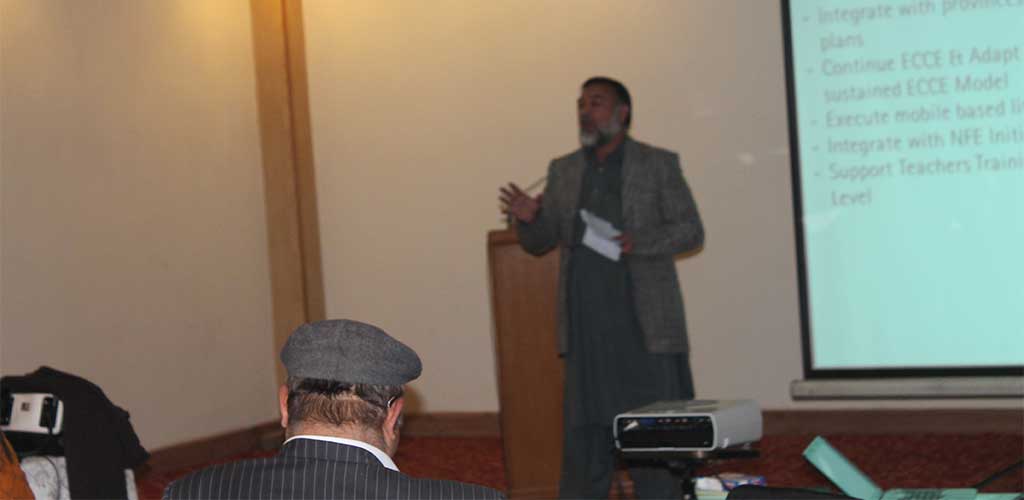Project Description
Plan International Pakistan is an international development organization operating in Pakistan since 1997. Plan is a child centered development organization striving for redeeming the conditions pertaining to children.
Country Strategy Programme is a pragmatic approach for Plan International Pakistan, to get engaged in the development endeavors. Country Strategy Programme III spanning from period of year 2010 through 2015 has been in place across the thematic areas of health, education, livelihood, disaster and governance. The CSP III rests on the tenets of rights based approach, whereby ensuring improved service delivery, capacity development of right holders and duty bearers, building partnerships and alliances, research & advocacy are the key strategic elements, to deliver the programme wise goals & objectives.
CSP III review has been a structured process carried to out to review the progress of the CSP III across the thematic areas. This process involved consultations with a wide array of the stakeholders including community, Plan implementing partners’, duty bearers at federal, provincial and district level, Plan CMT, ECMT & managers pertaining to key functions and Plan staff across all the layers of organization.
A total of 478 people put forth their views about different facets of CSP III interventions, including 311 men and 167 women, where different data collection methods have been applied right away from the individual interviews to the consultative workshops.
A summarized review about CSP III is presented in the following sections:
Programme Wise Review Commentary
The review reveals that programme interventions of Plan International Pakistan are relevant within the context of peculiar challenges of Pakistan and the child rights scenario as entailed in child rights scenario analysis document. The right based approach has started paying dividends as per overall development requirements.
Interventions intended by Education programme including for ECCE, NFE, and school improvement are overall relevant. The policy level footprint has been secured by Plan International Pakistan for ECCE.
The peculiar challenges associated with the education programme include mainstreaming non formal education and supporting the specific plan of action for education at provincial & local levels.
Health Programme’s interventions related to MNCH and improvement in the quality and coverage of health care services has been executed at a limited geographic scope versus the entire footprint of Plan International Pakistan. The deep rural communities where there is a severe dearth of basic MNCH & health consultation services are still un-attended.
Interventions of health programme related to sexual & reproductive health rights awareness and counselling of the young ones while instituting a youth helpline at Government level have been recognized by the community and duty bearers.
The overall level of impact of the health programme can be further improved while focusing on the basic health services provision in the community through both hard and soft components, participating in EPI programmes, mother & neonatal health care and addressing national health emerging issues like nutrition etc.
Livelihood programme has addressed human capital development through structured interventions. However the social performance management facets of the programme though executed very well have not been so promising on the side of impact.
Initiation of self-sustained entrepreneurship models while addressing agri value chain, services and skills related opportunities could propel the utilization of the skill of this human capital.
Disaster programme has been highly relevant in the context of Pakistan. The initial phase of the programme has faced some management issues but the programme’s impact on the community has been witnessed. Community resilience and capacity has been addressed by the programme very well along with that of providing specific hard component to the relevant departments.
Disaster programme has a high potential for scale up to further locations, integrated disaster management, programme integration with other thematic areas and building resilience in congruence with the national and provincial disaster authorities.
Governance programme has put forth certain hallmark achievements along with a relentless support form advocacy function. Early child marriages restraint act, child trafficking, corporal punishment policy and child pornography are the key credits. Governance Programme’s integration with other thematic areas can be tremendously improved at pre-programming stages.
Capacity building of the child rights governing bodies including national commission for children and other related bodies while providing them capable human resource in the domain of child rights.
Plan International Pakistan needs more integration at provincial level, in order to get benefitted from the congeniality of the environment prevailing across the units of governance after 18th amendment. This will help Plan International Pakistan ensure a right alignment with the provincial units.
Overall Strategic Choices Review Commentary
Since Plan International Pakistan is a child centered organization, therefore a centricity of CCCD approach is reflected in the programming; however, the CCCD standards based community development is an area where Plan International Pakistan needs to put more focus.
Community understanding about the right based approach is very basic. The community can only relate their rights to health, education, employment and safety through common statements. This clearly signifies a further focus on making the communities realized about their rights and probable avenues of the attainment of rights.
The programme strategy of capacity building of duty bearers and right holders has contributed to the outputs, where role of duty bearers has been witnessed as more productive. Community level impact of the capacity building has only been very visible in the education programme. There is still a tremendous space for improving the co-ordination and accountability mechanism with the duty bearers, with in the context of both Plan as well as the community.
Service delivery improvements have been noticed by the community primarily in the education programme, however health & employment related service deliveries have not attained a marked changed, as responded by the community.
Alliances between the right holders and duty bearers, being a key strategy has worked out well in the education and DRR programme. Such linkages have been attempted by the livelihood programme while linking the technically trained young people to the potential employers but due to suppressing economic conditions they have not been absorbed by the industry.
CSP III with in the Context of Organizational Functions of Plan International Pakistan
Plan International Pakistan needs to address the organization in terms of its structure & culture. The organizational structure is unable to carry the size of the activity of the organization.
Talent management is the key area where Plan needs to built-in efficiency in order to ensure an uninterrupted on-boarding and development of the critical talent. Employee satisfaction, career advancement and growth opportunities, increased sense of ownership, positively enforced set of values and enabling behaviors and installation of standardized processes across all the organizational facets are the key areas where people and culture department needs to have a disciplined and forward looking approach.
Finance functions’ role can be leveraged within the entire organization. Proper strategic financial management can help Plan International Pakistan become even more sustainable as organization. The orientation of strategic financial management can improve upon Plan International’s capacity to effectively undertake the resource mobilization.
The role of resource mobilization can be leveraged further; in order to tap in to development related funding opportunities. This will also support Plan International Pakistan to address the donor management area according to its fragility.
Role of Information Technology has to be elevated, as this can serve in the long term interest of the organization by making Plan International more efficient and control oriented.
There is an elaborated need for an integrated Monitoring, Evaluation & Research system that can help the management and operational staff, to navigate through the performance against the interventions, in a real time.
Productivity of “Communications and Advocacy” can be enhanced. The role of the two has to be stipulated right from the programme intervention pre-planning stages, so that a uniform approach around communications and advocacy can help across the facets of programme planning and implementation.
Community development processes and engagement of the community around CCCD standards needs a tremendous improvement this can be addressed through a standardized social mobilization approach. Similalry project management standardization can help in flawless execution. Institutional capacity strengthening of Plan implementing partners is a key development facet that can further complement Plan’s capability to execute right based programming.
PALS, needs more strength and elaboration, so that the process efficiency can be reviewed and enhanced.
A structured change programme for the entire organization is inevitable, given the kind of organizational development challenges the organization is facing.
Future outlook, of Plan International Pakistan is quite optimistic, as the thematic areas, picked up by the organization are highly relevant with the child rights scenario. There is a huge opportunity for Plan to exploit its programming relevance and experience, during the future in order attain a sustained and distinctively advantaged position, within the context of not-for-profit development.



